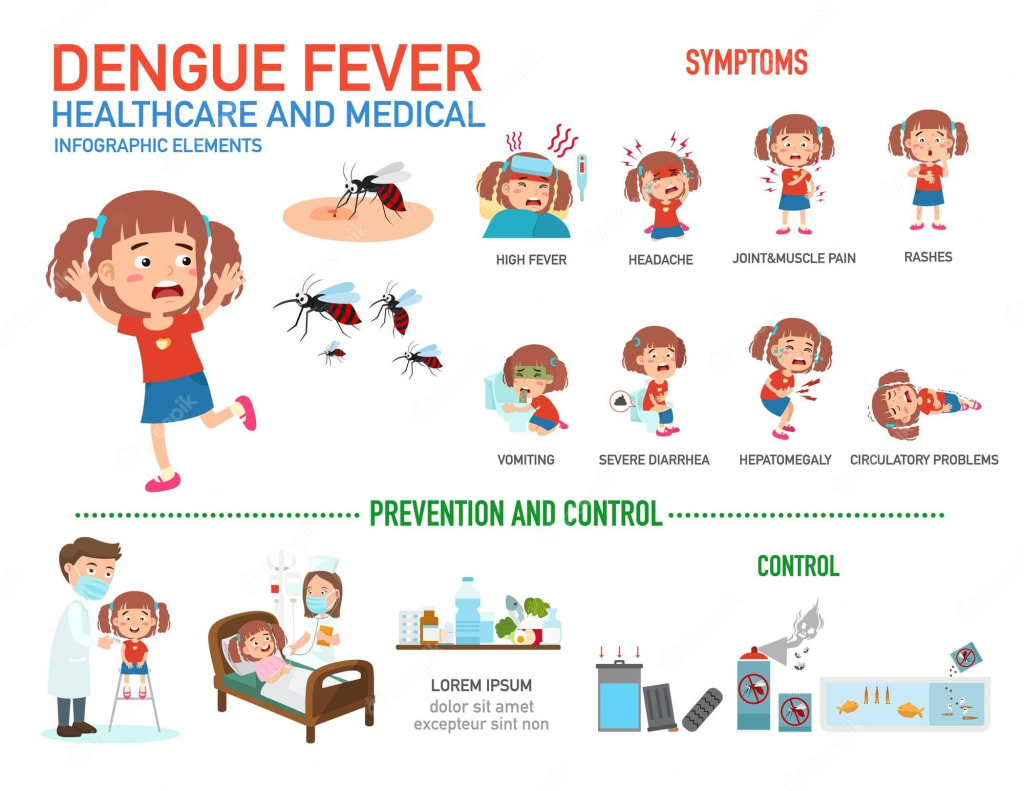Understanding Mosquito Diseases: What You Need to Know About Dengue and Severe Dengue
About Dengue and Severe Dengue

As a helpful assistant, I understand the importance of staying informed about diseases that can potentially affect our
health. Mosquito-borne diseases are among the most common and widespread diseases in the world, and they can be
transmitted to humans through the bite of an infected mosquito. In this article, I will provide you with a comprehensive
guide to understanding mosquito diseases, with a particular focus on Dengue fever and severe Dengue.
Introduction to Mosquito-borne Diseases
Mosquito-borne diseases are caused by viruses that are transmitted to humans through the bite of an infected
mosquito. Mosquitoes are known to carry a wide range of viruses, including Dengue, Zika, Chikungunya, Malaria,
Yellow Fever, and West Nile Virus. These diseases are prevalent in tropical and subtropical regions, where the climate
and environmental conditions are favorable for mosquito breeding and reproduction.
The transmission of mosquito-borne diseases is primarily through the bite of the female mosquito. When a mosquito
bites a human, it injects saliva into the bloodstream. If the mosquito is infected with a virus, the virus can be
transmitted to the human through the saliva. Once the virus enters the human body, it replicates and multiplies, leading
to the onset of symptoms.
Common Mosquito-borne Diseases
Mosquitoes carry a variety of diseases, and the symptoms can vary depending on the type of virus. Some of the most
common mosquito-borne diseases include:
Dengue fever
Zika virus
Chikungunya
Malaria
Yellow fever
West Nile Virus
These diseases can cause a range of symptoms, including fever, headache, muscle pain, joint pain, rash, fatigue, and
nausea. In some cases, they can lead to severe complications and even death.
What is Dengue Fever?
Dengue fever is a viral disease that is transmitted by the Aedes mosquito. The virus belongs to the Flavivirus family and
is prevalent in tropical and subtropical regions, including Southeast Asia, Latin America, and Africa. Dengue fever is
one of the most common mosquito-borne diseases, with an estimated 390 million cases reported each year.
Symptoms of Dengue Fever
The symptoms of Dengue fever typically appear within 4-7 days after the bite of an infected mosquito. The symptoms
can vary depending on the severity of the disease and can include:
High fever
Severe headache
Pain behind the eyes
Joint and muscle pain
Nausea and vomiting
Skin rash
In most cases, the symptoms of Dengue fever will resolve within a week. However, in some cases, the disease can
progress to severe Dengue.
Understanding Severe Dengue
Severe Dengue is a life-threatening complication of Dengue fever. It is characterized by severe bleeding, organ failure,
and shock, and can be fatal if not treated promptly. Severe Dengue is more common in people who have been infected
with the Dengue virus before.
Causes of Severe Dengue
The exact cause of severe Dengue is not fully understood. However, it is believed that the immune response to the virus
plays a significant role in the development of severe disease. In some cases, the immune response can lead to an
excessive release of cytokines, which can cause damage to the organs and tissues.
Symptoms of Severe Dengue
The symptoms of severe Dengue can appear 3-7 days after the onset of Dengue fever and can include:
Severe abdominal pain
Persistent vomiting
Bleeding from the gums or nose
Blood in the urine, stools, or vomit
Rapid breathing
Cold, clammy skin
Fatigue
Restlessness or irritability
If you experience any of these symptoms, it is essential to seek medical attention immediately, as severe Dengue can be
life-threatening.
Prevention and Control Measures
Preventing mosquito bites is the best way to prevent mosquito-borne diseases. Some of the measures you can take to
prevent mosquito bites include:
Use insect repellents containing DEET, picaridin, or oil of lemon eucalyptus
Wear long-sleeved shirts and pants
Use mosquito nets over beds and cribs
Remove standing water around your home, as this is where mosquitoes breed
Keep windows and doors closed or screened
Treatment Options
There is no specific treatment for Dengue fever or severe Dengue. Treatment is primarily supportive and aims to
manage the symptoms. In severe cases, hospitalization may be required, and treatment may include intravenous fluids,
blood transfusions, and oxygen therapy. If you have been diagnosed with Dengue fever or severe Dengue, it is essential
to rest, stay hydrated, and avoid aspirin and non-steroidal anti-inflammatory drugs (NSAIDs), as these can increase the
risk of bleeding.
Conclusion and Final Thoughts
Mosquito-borne diseases are a significant public health concern, and it is essential to take measures to prevent
mosquito bites. Dengue fever and severe Dengue are two of the most common mosquito-borne diseases, and they can
lead to severe complications and even death. If you experience symptoms of Dengue fever or severe Dengue, it is
essential to seek medical attention immediately. Remember to take preventative measures to avoid mosquito bites and
stay informed about the latest developments in mosquito-borne diseases.
CTA: Protect yourself and your loved ones from
mosquito-borne diseases by taking preventative
measures such as using insect repellents and
removing standing water around your home. Seek
medical attention immediately if you experience any
symptoms of Dengue fever or severe Dengue.






Comments
There are no comments for this story
Be the first to respond and start the conversation.